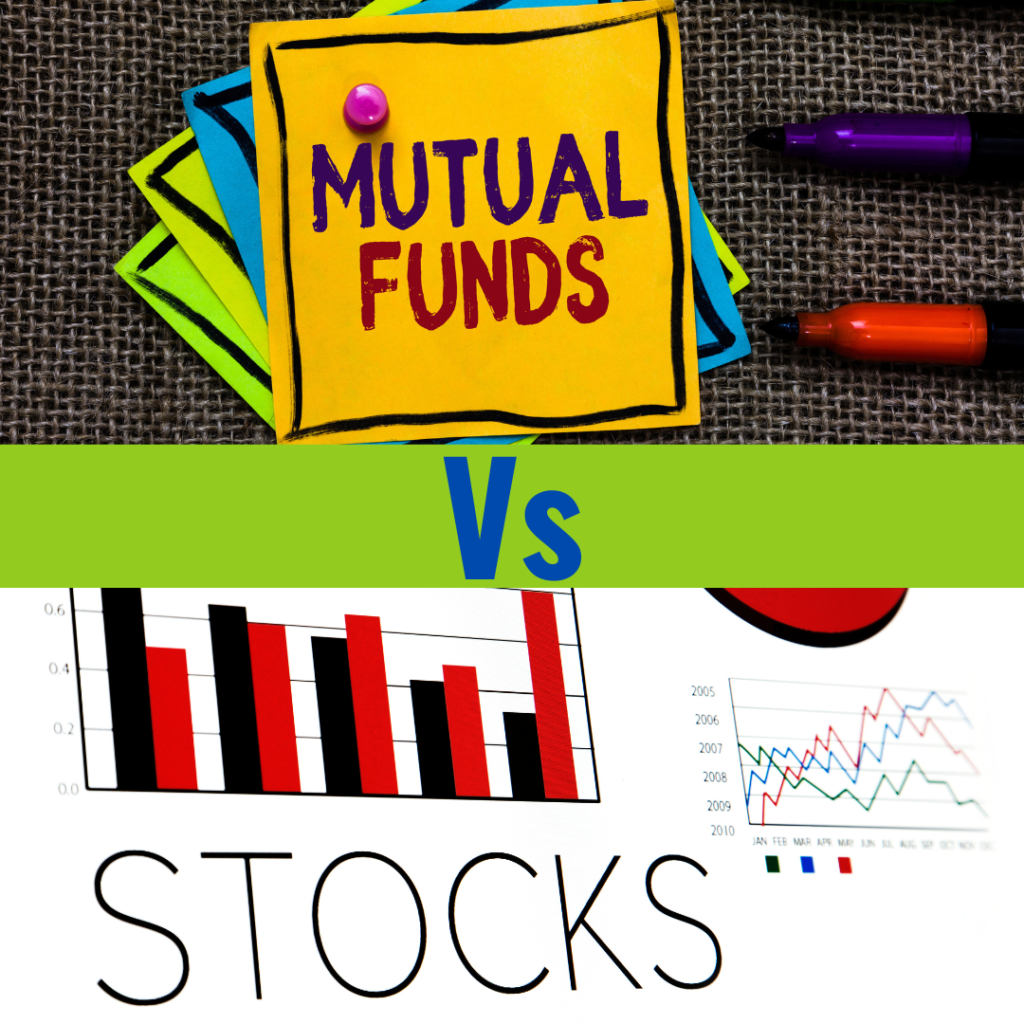
Today’s young investor enjoys a myriad of financial investing possibilities. However, one factor impacting their decision is the choice between mutual funds and investing directly in shares. In this blog post, we will attempt to address this issue of a typical investor.
Just a disclaimer that this is not an investment advice and the pure purpose of my blog-posts are to create investor awareness, so that they take an informed decision when it comes to investments.
It is well known that when the stock market is experiencing a bull run and benchmark indexes are rising, many investors choose to invest directly in stocks. The equities market is a clear yet tough investing route. With the degree of volatility it endures, patience is required. And this presents an important question for investors: is mutual fund investment superior to direct stock exposure, and which is the better investment option?
Phenomenal increase in Demat Accounts:
In accordance with data provided by the two depository organizations, Central Depository Limited (CDL) and National Security Depository Limited (NSDL), India’s total number of demat accounts exceeded 11 crore in January 2023. This is the first time in the Indian history that such a landmark has been achieved. Before the Covid related lockdown in March-2020, India had only 4.1 crore demat accounts in March 2020.

The country’s dramatic increase in the number of people with demat accounts may be attributed to factors such as market development, work-from-home choices, increased internet service penetration, and the necessity for a second source of income. Lower brokerage costs and positive market growth forecasts for the foreseeable future have also contributed to an increase in the stock market’s investor base. Even more promising is the fact that Tier 2 and Tier 3 cities have created the bulk of new demat account holders in the past few years.
Risk assessment is the ‘Key’:
Investors must overcome a number of prejudices since investing is largely an emotional game. Recency bias is the most common difficulty that novice or retail investors face. This demonstrates that individuals base their decisions on recent historical events. This is analogous to how equity benchmark indexes have evolved during the previous three to four years, when novice investors have had considerable success. Without a doubt, equity would always be favoured over mutual funds since most participants (particularly new entrants) prefer to have exposure to the stock market directly given its previous success. Every asset class entails varying levels of risk, just as each individual’s risk tolerance is distinct.
In simple terms, the risk in mutual funds vs direct stocks is very different. In other words, direct stock exposure is always a risky gamble with huge returns. While the investor may obtain higher returns, there is also the possibility of receiving lesser returns. Equity mutual fund schemes are riskier than other asset classes, but they offer a wide portfolio range. Individual shares’ holding does not provide for diversification if the investment is small. Any adverse return on a single stock in a mutual fund can be countered by greater returns from other stocks due to diversification and fund managers’ capacity to stabilize fund portfolios.
Diversification comes to your rescue:

Diversification has multiple benefits. A well-diversified portfolio should include at least 15 to 20 shares, but for an individual investor, this may be a significant investment. Hence, diversification is rarely possible when investing directly in shares. However, with mutual funds, even a little investment of Rs. 500 to Rs. 1,000 may result in a well-diversified portfolio. An investor can invest across multiple stocks without making a large initial commitment by buying mutual fund units.
Furthermore, your money is being managed by the most experienced fund managers (although we have to bear some nominal costs as fund management fees). The mutual fund does well here, but portfolios are not built overnight. You can begin an equity SIP to create a well-diversified portfolio.
Markets are a more of a ‘Mind’ game:
Making financial investments is a skilful profession that requires a high level of attention, effort, and time. It may be simple, but it is certainly not easy. One might be an expert in a certain field. A person may be a great salesperson, a building architect, a software coder, or an expert in a certain industry. It is normally desirable to stay in one’s area of expertise because doing so would most likely result in that person earning more money in that field. It may not work well if we try to earn from our core employment while simultaneously experimenting in investing. Experts believe that it is best to delegate investing to professionals. Investing in mutual funds especially helps with this. Consider how difficult it would be to work on stock investments and your principal job concurrently. Some people might be unable to perform multiple tasks in this way.
Final Verdict – Who has the Upper Hand?

Investors’ decisions determine whether to use mutual funds or direct equity. One advantage of investing with mutual funds is that you do not have to select the stocks yourself. The procedure is carried out by a seasoned fund manager who specializes in his sector. Direct equity investment requires on-going time and attention in order to select stocks, follow those stocks, decide on sector and asset allocation, and then transact in stocks as needed. However, in the case of mutual funds, fund managers are responsible for doing research and allocating money after selecting a mutual fund scheme that aligns with one’s financial objectives.
Investors are known to start stock investments with excitement, but when the work grows boring and returns become rare, they lose interest. The ultimate result is portfolio stagnation. Eventually, some portfolios grow so out-dated that a large number of the stocks in them either completely go out of business or, in the majority of cases, don’t offer an exit route. An investor can completely avoid these scenarios by investing in a mutual fund. The fund manager’s role is to ensure that the portfolio includes high-quality shares with the potential for long-term returns. Furthermore, regular investors would have limited access to the network, research ability, financial instruments, and ties with company management that mutual fund managers have. Last but not least, performance compensation is linked to portfolio performance, so fund managers concentrate on increasing returns and profits.
Direct investing is for you if you have the necessary temperament and the ability to do independent equities research and form your own opinions. But it is a high-risk affair, and direct market participation requires knowledgeable investors. Most of us are inexperienced investors, thus mutual funds are a preferable investment option. Furthermore, MF investing is simple and effective for sticking to your financial goals (goal-based investment). A mutual fund looks to be a good option for anyone looking for steady growth while simultaneously trying to beat inflation and earn better risk-free returns.





